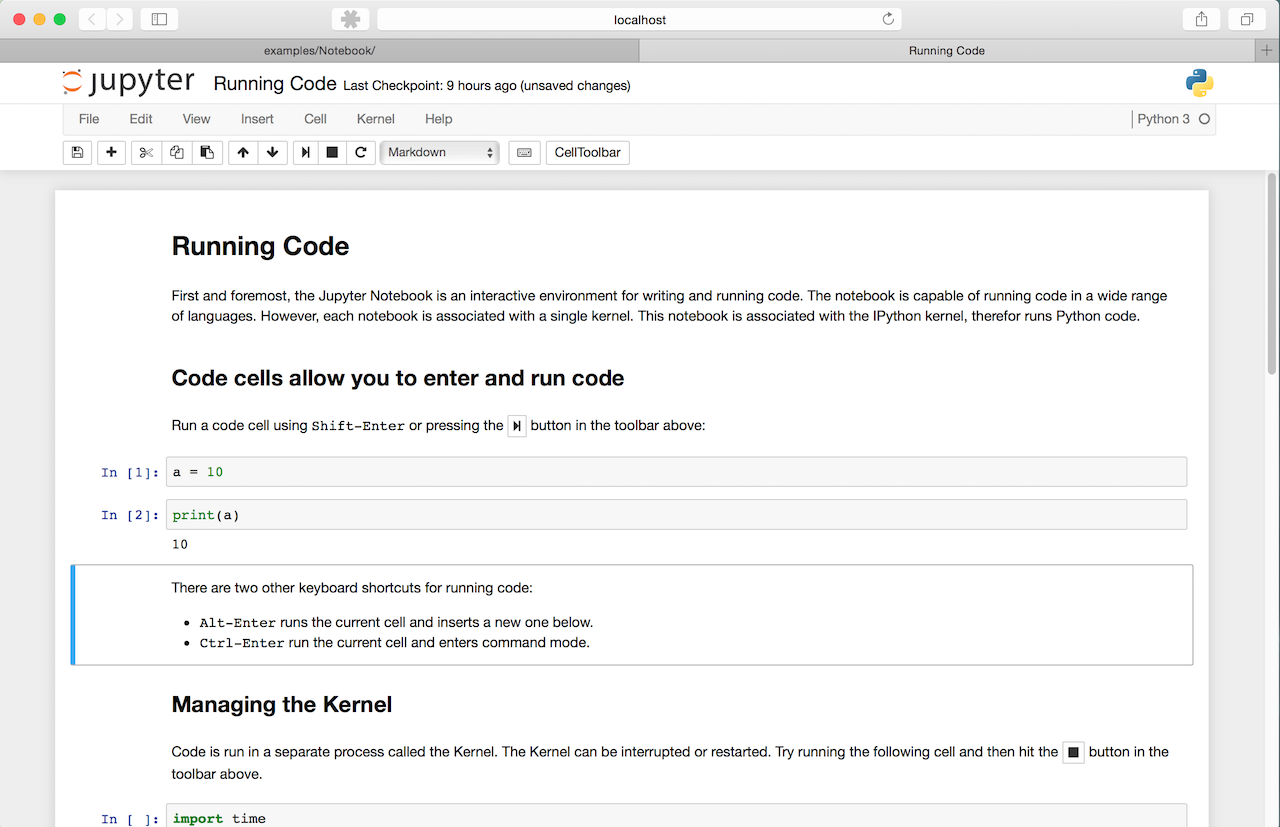This change alleviates a significant pain-point for consumers of Jupyter Kernel and Enterprise Gateway projects by embedding the few classes defined in the NB2KG server extension directly into the Notebook server. All code resides in a separate gateway directory and the 'extension' is enabled via a new configuration option `--gateway-url`. Renamed classes from those used in standard NB2KG code so that Notebook servers using the existing NB2KG extension will still work. Added test_gateway.py to exercise overridden methods. It does this by mocking the call that issues requests to the gateway server. Updated the _Running a notebook server_ topic to include a description of this feature. |
||
|---|---|---|
| docs | ||
| docs-translations/ko-KR | ||
| git-hooks | ||
| notebook | ||
| tools | ||
| .babelrc | ||
| .bowerrc | ||
| .eslintignore | ||
| .eslintrc.json | ||
| .gitignore | ||
| .gitmodules | ||
| .mailmap | ||
| .travis.yml | ||
| appveyor.yml | ||
| bower.json | ||
| codecov.yml | ||
| CONTRIBUTING.rst | ||
| COPYING.md | ||
| MANIFEST.in | ||
| package.json | ||
| README.md | ||
| readthedocs.yml | ||
| setup.cfg | ||
| setup.py | ||
| setupbase.py | ||
Jupyter Notebook
The Jupyter notebook is a web-based notebook environment for interactive computing.
Jupyter notebook, the language-agnostic evolution of IPython notebook
Jupyter notebook is a language-agnostic HTML notebook application for Project Jupyter. In 2015, Jupyter notebook was released as a part of The Big Split™ of the IPython codebase. IPython 3 was the last major monolithic release containing both language-agnostic code, such as the IPython notebook, and language specific code, such as the IPython kernel for Python. As computing spans across many languages, Project Jupyter will continue to develop the language-agnostic Jupyter notebook in this repo and with the help of the community develop language specific kernels which are found in their own discrete repos. [The Big Split™ announcement] [Jupyter Ascending blog post]
Installation
You can find the installation documentation for the Jupyter platform, on ReadTheDocs. The documentation for advanced usage of Jupyter notebook can be found here.
For a local installation, make sure you have pip installed and run:
$ pip install notebook
Usage - Running Jupyter notebook
Running in a local installation
Launch with:
$ jupyter notebook
Running in a remote installation
You need some configuration before starting Jupyter notebook remotely. See Running a notebook server.
Development Installation
See CONTRIBUTING.rst for how to set up a local development installation.
Contributing
If you are interested in contributing to the project, see CONTRIBUTING.rst.

